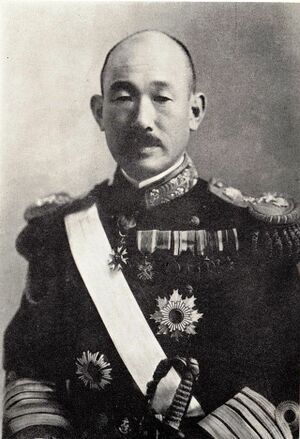Tzui Ming

Tzui Ming (1579 - 1672 AN) served as a First Admiral of the Tianchao Chuandui between 1623 and 1655 AN. As young noble, he and his family had supported the Haigui Emperor with both financial as military support, which earned him a fast promotion within the Tianchao Haijing (Imperial Coast Guard). The Tianchao Haijun, at that time almost non-existent, became a priority, and Tzui was appointed as first First Admiral of the newly composed Tianchao Chuandui.
Under his impulse, an effort was done to expand the naval capacity of the Xindao Program. The lack of direction, major scandals (which were silenced) and rampant corruption led to a navy which was strong in tonnage but lacked any decent strategical planning. The decision to 'lock up' a large pazrt of the navy in the safe Lake Christoph would prove disastrous as the river mouth which granted ships access from the Antya River into Carama Bay ended up becoming a bottleneck. Ships were unable to safely leave to open sea and were effectively pinned down and rendered unusable. Lack of infrastructure and port facilities, either because there was none (as neither the planned Xiacheng nor Xiaogong ports had been decently been prepared for the large warships and number of submarines). or it had been destroyed by enemy bombardment (in Yuanbeicheng, for example) would have made it impossible for larger war fleets to safely carry out its missions.
Between 1653 and 1655 AN he was heavily invested in leading the Navy during the War of Lost Brothers. The heavy losses at the Battle of Carama Bay, while hailed as a victory for the Jingdaoese fleet, led to the unnecessary destruction of many ships. Having fallen from grace, the admiral was stripped from his position and replaced by Liang Dumyan.
After having been deposed from his function, Tzui Ming petitioned to join the fleet as a normal soldier. The request was denied, and he was, instead put in charge of a small coastal patrol boat. He served honourably during the war, but was critical towards his successor.
In 1664 AN, he opened a museum in the city of Sheng, dedicated to the navy and the fallen soldiers in the war. He eventually died of cancer at home in 1672, in Sheng.